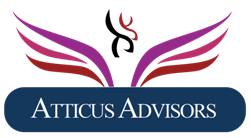Failure has a way of hitting hard. It arrives uninvited—shattering confidence, draining motivation, and leaving even the most seasoned leaders questioning their foundations. But while failure is inevitable, what defines exceptional founders and business leaders is not whether they encounter crisis, but how they respond to it.
Among the most successful entrepreneurs, there’s a shared pattern: they don’t let failure be the final word. Instead, they take the raw energy of disappointment and channel it into momentum. Crisis becomes their inflection point—often launching something bolder and more aligned than what came before.
When the Personal Becomes Professional
Jane Galloway was flourishing in her NHS career when life delivered a series of blows: the loss of her mother to cancer, a divorce, a diabetes diagnosis, and workplace bullying. Any one of these would be destabilizing on its own; together, they created a perfect storm. But rather than collapse under the weight of it all, Galloway used the moment to launch her business, Quiet the Hive. Driven by the impact she was having on the women she coached, and the conviction in her own advice, she left a 24-year public service career to go all-in on her entrepreneurial vision.
Her story underscores a hard truth: sometimes our most painful professional setbacks are the push we need to pursue what we truly want.
When Diagnosis Leads to Direction
At 21, Christopher Anselmo was diagnosed with a rare muscle disease. The weight of the news hit him fully only years later, when he experienced a panic attack that landed him in the ER. What followed, however, wasn’t withdrawal—it was reinvention. He began writing and speaking about his health journey, uncovering a new purpose. Today, Anselmo is a published writer with a growing newsletter audience (Hello, Adversity), turning a personal health crisis into a powerful channel for helping others navigate their own.

When Career Stability Disappears Overnight
Historian Simon Green was made redundant at 56 after decades in a well-established career. Two years of uncertainty followed. But within the stillness, a long-time fascination with South African blockhouses grew into a calling. Despite repeated rejections from publishers, Green self-published—eventually selling 1,500 books and earning global recognition. He’s now pursuing a PhD on the topic. His philosophy? “Never ever say never.” A once-closed door led to the rediscovery of purpose.
When Struggle Starts Early
Brianna Johnston started her first business at 16, during the depths of an eating disorder and debilitating anxiety. What began as a way to keep her mind active became a mission. She built a successful 12-year entrepreneurial journey—launching digital businesses, mentoring others, and even developing her AI tool, BriBot. Her darkest moments, she now says, became her most meaningful story.
When Loyalty Meets Exploitation
Identity alignment coach Antonio Strunjak helped scale a company to seven figures, only to be denied a raise under the guise of “spiritual purpose.” The emotional manipulation pushed him to walk away—no backup plan, no safety net. What followed was a transformation. Through relentless service and clear purpose, Strunjak built a thriving coaching practice helping high-level leaders find balance between success and fulfillment. Even as personal hardship continued, including the loss of his father, he held firm to one belief: mindset is everything.
When Passion Finds Purpose Post-Retirement
After retiring from teaching, Missy Walker felt adrift. Rock bottom wasn’t just financial—it was existential. But what began as a simple love of jigsaw puzzles turned into a competitive passion, then into a blog, and eventually a new business. Today, she teaches puzzle techniques online and earns through her blog. Reinvention doesn’t always look like tech or investment rounds—sometimes it starts with a quiet personal hobby that refuses to let go.
When the Pressure Builds All at Once
Faye Hatton had just re-entered the workforce after years as a stay-at-home mother when two crises hit in quick succession: COVID lockdown and a marriage breakdown. But freelancing became more than a means to survive—it became a path to independence. Five years later, she’s not only built a successful PR business but also started coaching single-parent entrepreneurs. She turned personal disruption into professional distinction.
Converting Crisis to Catalyst
Across these stories, a pattern emerges. Crisis hits. Options narrow. The easy path is to retreat—to give up or simply survive. But the founders who emerge stronger do something else entirely. They respond with action. With purpose. They allow the moment to reframe what’s possible.
The lesson is not that crisis is desirable. It’s that crisis, if we let it, can reveal dimensions of ourselves—and our potential—that would otherwise stay hidden.
So here’s the question:
When the next crisis inevitably arrives, will you let it define your limits—or will you use it to discover a new version of what success can look like?
